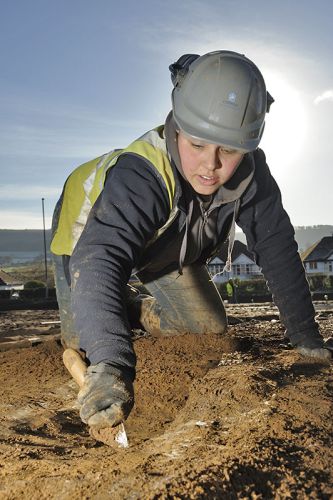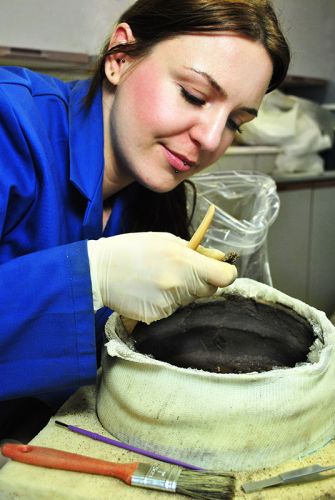
The word 'professional' is often taken to mean someone who is paid to do their work. This is not what we mean when we talk about professional accreditation and professional archaeologists. We use the term 'professional' for archaeologists who are professionally accredited, accountable to a Code of conduct and act in the public interest.
Professional accreditation is a formal recognition of your skills, knowledge and behaviours and how you use these to carry out your work effectively to professional standards. Professional accreditation is open to anyone working in archaeology or the heritage sector.
Why should you be accredited?
Accreditation is an important investment for your career, enhancing your reputation, opportunities and connection to the profession.
What accreditation does for you
- it recognises your skills and knowledge – accreditation shows that your expertise has been recognised by peers in the archaeology profession
- it reflects your professional dedication and commitment to ethical practice – accreditation shows your commitment to CIfA's ethical Code of conduct and professional standards. This demonstrates your dedication to working responsibly and serving society, which are core principles of the profession
- it gives you status and boosts self-esteem – you can use CIfA's widely recognised designations after your name, which shows others that you are a skilled professional. Many people feel more confident and respected after achieving professional accreditation
- it is highly regarded by employers – professional accreditation is often preferred by employers when recruiting and by clients as part of the tendering process. It also enhances your professional credibility as an expert witness or when giving advice to others
- it provides access to a community of professional archaeologists – being part of CIfA offers valuable opportunities for knowledge exchange, networking and staying updated on the latest good practice. This is essential for career development or business growth
What accreditation does for archaeology
- it promotes a culture of excellence – accreditation fosters a culture of quality and shared professional values. This motivates archaeologists to maintain high standards of practice and behaviour.
- it ensures the use of the latest industry standards and practices – our members are committed to keeping their skills and knowledge up to date through Continuing Professional Development.
- it provides credibility and profile – accreditation is a trusted mark of quality and professionalism. Clients working with accredited archaeologists can be confident that the work will be aligned with professional standards, meeting their needs with reliability and expertise.
- it provides a collective voice – a large professional membership strengthens CIfA's advocacy and influence. This allows us to more effectively promote the value of archaeology to wider audiences and ensure that the profession is recognised and appreciated in society
You can read more in the
Regulating the profession

Archaeology in most cases is not regulated by government so CIfA provides the profession with the mechanisms to regulate itself through professional accreditation.
Professionally accredited archaeologists have not only made a personal commitment to maintain their skills and competence, and to reflect on their understanding and application of professional standards, but also to encourage other archaeologists to adopt the code and professional standards, and to ensure that others benefit from their experience and knowledge.
Where other accredited archaeologists do not appear to be maintaining their professional commitments, CIfA provides a professional conduct process which can investigate any allegation and ultimately can remove someone's professional accreditation.
Find out more about gaining professional accreditation on our Join CIfA pages.

